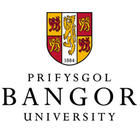- News and articles
- Find usIDP AustraliaIDP BahrainIDP BangladeshIDP CambodiaIDP CanadaIDP ChinaIDP EgyptIDP GhanaIDP Hong KongIDP IndiaIDP IndonesiaIDP IranIDP JordanIDP KenyaIDP KoreaIDP KuwaitIDP LebanonIDP MalaysiaIDP MauritiusIDP Middle EastIDP NepalIDP New ZealandIDP NigeriaIDP OmanIDP PakistanIDP PhilippinesIDP Saudi ArabiaIDP SingaporeIDP Sri LankaIDP Taiwan, ChinaIDP ThailandIDP TurkeyIDP UAEIDP VietnamIDP Corporate
- Social
- English
- Where we operate
- Courses
- Scholarships
- IELTS
- About IDP
- Student Essentials
- News and articles
- Find us
- Find us
- Find nearest IDP offices
- IDP Australia
- IDP Bahrain
- IDP Bangladesh
- IDP Cambodia
- IDP Canada
- IDP China
- IDP Egypt
- IDP Ghana
- IDP Hong Kong
- IDP India
- IDP Indonesia
- IDP Iran
- IDP Jordan
- IDP Kenya
- IDP Korea
- IDP Kuwait
- IDP Lebanon
- IDP Malaysia
- IDP Mauritius
- IDP Middle East
- IDP Nepal
- IDP New Zealand
- IDP Nigeria
- IDP Oman
- IDP Pakistan
- IDP Philippines
- IDP Saudi Arabia
- IDP Singapore
- IDP Sri Lanka
- IDP Taiwan, China
- IDP Thailand
- IDP Turkey
- IDP UAE
- IDP Vietnam
- IDP Corporate
- Social
- Language Switcher
- IDP Education /
- Colleges and Universities /
- United Kingdom /
- Bangor University /
- BA (Hons) English Language ...


Location
United Kingdom
Qualification
Bachelor Degree with Honours
Fees
GBP17000
(2025)
Duration
3 Year(s)
Next intake
29 September 2025
Entry Score
6.0
IELTSCourse info
- Scholarships View all scholarships
- Internships
Entry requirements for Bangor University
A Levels: General Studies and Key Skills not normally accepted.
BTEC National Extended Diploma: MMM - DDM
Cambridge Technical Extended Diploma: MMM- DDM
City & Guilds Advanced Technical Extended Diploma (1080): considered on a case-by-case basis
International Baccalaureate Diploma: grade H5 in English Literature/Language preferred but not required
Access: pass required
Welsh Baccalaureate: We will accept this qualification in conjunction with other level 3 qualifications
T Levels: T Levels in a relevant subject considered on a case-by-case basis
Extended Project Qualification: Points can include a relevant Extended Project (EPQ) but must include a minimum 2 full A-levels, or equivalent.
We are happy to accept combinations of the qualifications listed above, as well as alternative Level 3 qualifications such as City & Guilds, Access and Cambridge Technical Diplomas.
IELTS - 6.0 (5.5), TOEFL iBT - 75 overall , (L-17, R-18, S-20, W-18)
Application Deadline
The application deadline isn't available Speak to an IDP counsellor for more detailed information
Further information
If you aren't eligible for the above entry requirements, you might ant to explore pathway options at Bangor University. If you want to find out more, speak to our counsellors.
THE World Ranking
401st / 1250
THE World Ranking52nd / 130
Complete University guideWhat our students think
We’ve haven’t received any reviews for this institution yet.
Recommended for you
- Bachelor Degree with Honours
- Bolton , United Kingdom
- Next intake:09/2025
- Entry Score: IELTS 6.0
- GBP13550 (2025)
- Bachelor Degree with Honours
- Chichester , United Kingdom
- Next intake:09/2025
- Entry Score: IELTS 6.0
- GBP15840 (2025)
- Bachelor Degree with Honours
- Bolton , United Kingdom
- Next intake:09/2025
- Entry Score: IELTS 6.0
- GBP15950 (2025)
- Bachelor Degree with Honours
- Nottingham , United Kingdom
- Next intake:09/2025
- Bachelor Degree with Honours
- Chichester , United Kingdom
- Next intake:09/2025
- Entry Score: IELTS 6.0
- GBP15840 (2025)
- Bachelor Degree with Honours
- Dundee , United Kingdom
- Next intake:09/2025
- Entry Score: IELTS 6.0
- GBP14000 (2025)
- Undergraduate Masters
- Edinburgh , United Kingdom
- Next intake:09/2025
- Entry Score: IELTS 6.5
- GBP24950 (2025)
- Bachelor Degree with Honours
- York , United Kingdom
- Next intake:09/2025
- Entry Score: IELTS 6.5
- GBP26800 (2025)
Your action plan
Step 1
Shortlist your courses
Choose the best three courses you’re most likely to pursue.
Step 2
Check your eligibility
Get an instant in-principle offer for courses with the IDP FastLane tag.
Step 3
Apply through IDP Live
Fill out the form once and use it to apply to multiple courses.
How does IDP FastLane work?
With the FastLane 'Offer in Principle', you'll know in minutes if you'll be accepted!
Select an institution and course
Create your academic profile
Submit your application for an 'Offer in Principle'
Your chosen institution(s) will send you a decision in minutes!
Get ready to apply with an expert counsellor




